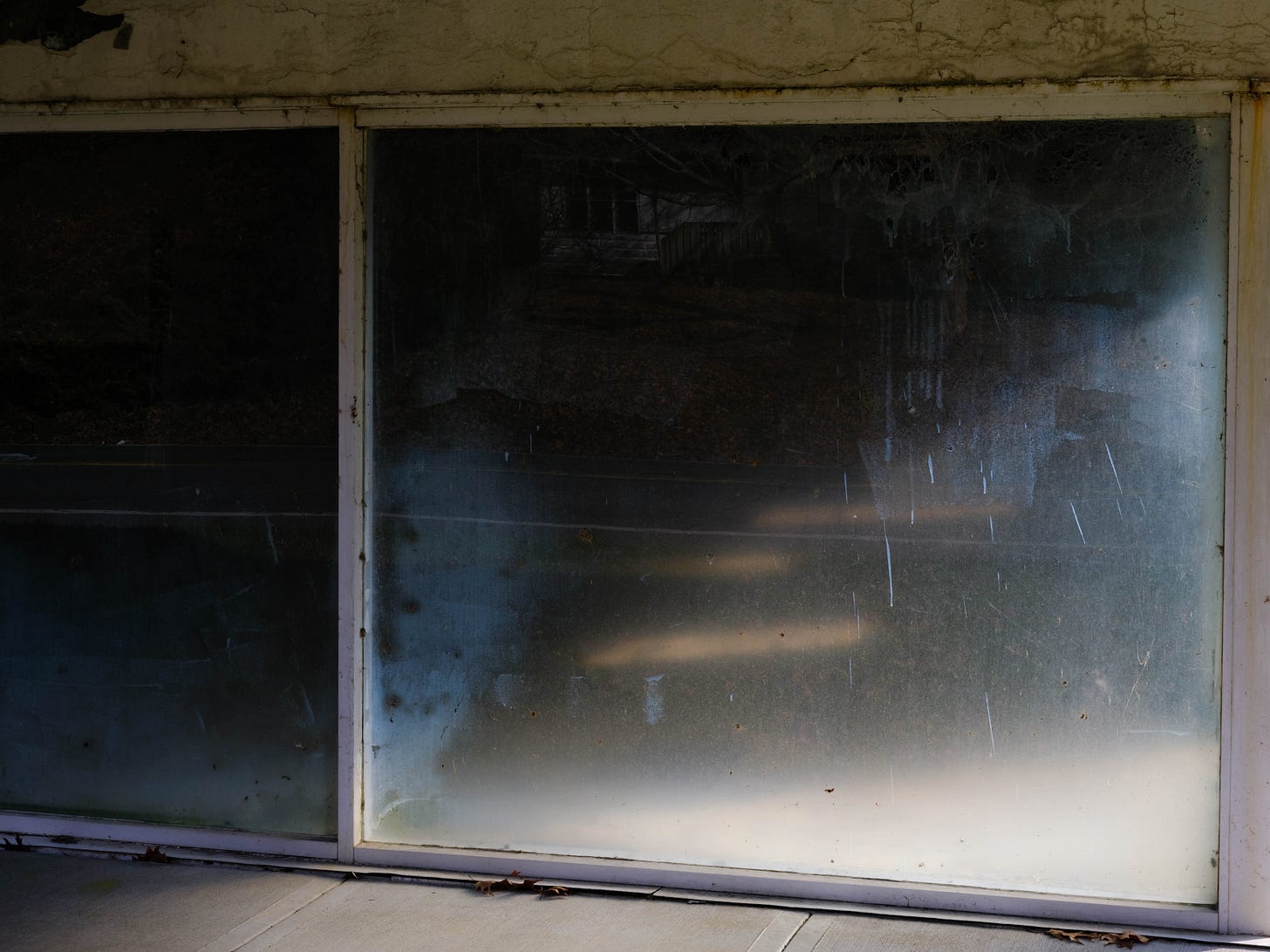The project All The Lonely Places is a negotiation between self and world, mediated through an act of looking. There is a terribly mistranslated quote from the Torah that reads "wherever you look, there is something to see”. In a sense, this is what we all do, if we only pause long enough to recognize it.
Wherever I look, in a world destroyed by capitalism’s worst extractive and exploitive policies, there is something to see. There must be something to see; if not, what are we doing here?
This is as much a practice of looking as it is a practice to survive the unrelenting onslaught of ugliness and violence. When we choose to look (and it is a choice also to look away), we engage in a form of empathy, of a feeling-with.
Looking through feeling-with becomes a looking-with.
And there are days when I look, but I don’t see. And those are dark days in which my vital energy is sapped out, my indigenous wildness reduced to compromise and impotence.
While in our contemporary times we think of the libido as Freud did—as our sexual energy, our prowess—Carl Jung envisioned the same energy as our “life-force”. Desire yes—even sexual desire—but also will, interest and passion. Lacking this—for anyone—leaves you open to depression, to a feeling of “stuckness”. This stuckness, for me at least, is terrifying.
And so I practice looking. Negotiating a space in which what I view—alienating on the surface—becomes instead a place of, if not beauty, then at least curiosity. My gaze is exilic, always looking from the outside, as the exile. In Deleuze and Guattari’s study on Kafka, Toward a Minor Literature, they write;
Kafka marks the impasse that bars access to writing for the Jews of Prague and turns their writing into something impossible —the impossibility of not writing, the impossibility of writing in German, and the impossibility of writing otherwise.
In the face of ugliness in the world—in all forms (political, sociological, educational) but made manifest in shopping malls, drive-thrus, collapsing structures of all types, plush stuffed animals left on the side of the road beside stained mattresses, cracked asphalt, the gash of new building, the loneliness of the suburbs and the airport, wall to wall carpeting, the quieted gaze of others into their screens, empty sports fields, industrial spaces of all types, mines and mills and dams and harvested fields—I find a similar impasse. I cannot look, I cannot see how “they” want me to see, and I cannot look away.
All the Lonely Places is a negotiation then with that which draws me forward as well as horrifies me. This negotiation is a dialogue, a talking with a world that has historically looked away, refusing my gaze—our gaze. Let us look then together, carefully and with compassion.



